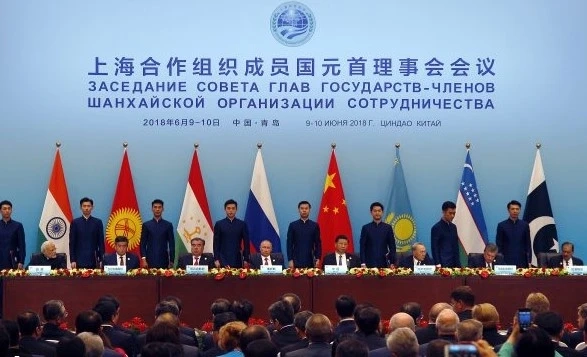The Shanghai Cooperation Organization (SCO) stands as a prominent international alliance, fostering cooperation among its member states. With an influential presence in the Eurasian region, the SCO aims to enhance regional security, promote economic collaboration, and strengthen cultural ties. As countries consider joining the SCO, it's crucial to analyze the benefits and challenges they may encounter. In this article, we dive into the advantages and potential obstacles associated with SCO membership, offering valuable insights for participating countries.
Shanghai Cooperation Organization Members: An Overview
The SCO comprises eight full members, namely China, Russia, India, Pakistan, Kazakhstan, Kyrgyzstan, Tajikistan, and Uzbekistan. Additionally, it includes four observer states, including Afghanistan, Belarus, Iran, and Mongolia, along with six dialogue partners. The organization's framework promotes cooperation in various fields, such as security, economy, and culture, among member states.
Benefits of SCO Membership
Enhanced Regional Security: Joining the SCO allows countries to participate in collective efforts to combat terrorism, separatism, and extremism. Member states benefit from intelligence sharing, joint military exercises, and collaboration in counter-terrorism operations, bolstering their individual security.Economic Advantages: SCO membership presents countries with opportunities to boost their economies through increased trade, investment, and infrastructure development. The organization's focus on economic cooperation provides member states access to a dynamic market, contributing to improved economic growth and stability.Political Influence: As part of the SCO, countries gain a platform to voice their concerns and shape regional policies. Regular summits and meetings provide the opportunity to engage in diplomatic discussions and negotiate mutually beneficial agreements, elevating the participating nations' political significance on the global stage.Cultural Exchange: The SCO encourages cultural exchange programs, promoting mutual understanding and appreciation among member states. Through festivals, exhibitions, and academic collaborations, participating countries can strengthen people-to-people ties, fostering a sense of unity and harmony.Energy Cooperation: The SCO facilitates cooperation in the field of energy, including oil, natural gas, and renewable sources. Member states can benefit from resource-sharing agreements and technology transfers, ensuring energy security and diversification of their energy portfolios.Challenges of SCO Membership
Diverse Interests: The SCO consists of countries with diverse political systems, economic priorities, and security concerns. Coordinating policies and finding common ground among member states can be challenging due to these divergent interests.Border Disputes: Some member states have unresolved border disputes, which can create tensions and hinder cooperation within the SCO. Addressing and resolving these territorial issues require careful diplomacy and compromise.Complex Decision-Making Process: Consensus-based decision-making within the SCO can slow down the organization's response to emerging issues. Differences in opinions among member states may lead to prolonged negotiations and decision delays.Security Threats: While the SCO aims to enhance regional security, member states must remain vigilant against emerging security threats. Terrorist activities, cross-border crimes, and geopolitical tensions pose challenges that demand continuous efforts and cooperation.Resource Allocation: As the SCO expands, ensuring equitable resource allocation becomes crucial. Balancing the distribution of benefits and opportunities among member states can sometimes lead to disputes and disagreements.Conclusion
Joining the Shanghai Cooperation Organization members offers participating countries a range of benefits, including enhanced regional security, economic advantages, political influence, cultural exchange, and energy cooperation. However, challenges such as diverse interests, border disputes, complex decision-making processes, security threats, and resource allocation need to be addressed for smooth cooperation within the organization. As countries weigh the advantages and drawbacks, careful analysis and strategic planning are essential to make the most of SCO membership. Through effective collaboration, the SCO can continue to play a significant role in promoting stability and development in the Eurasian region.


